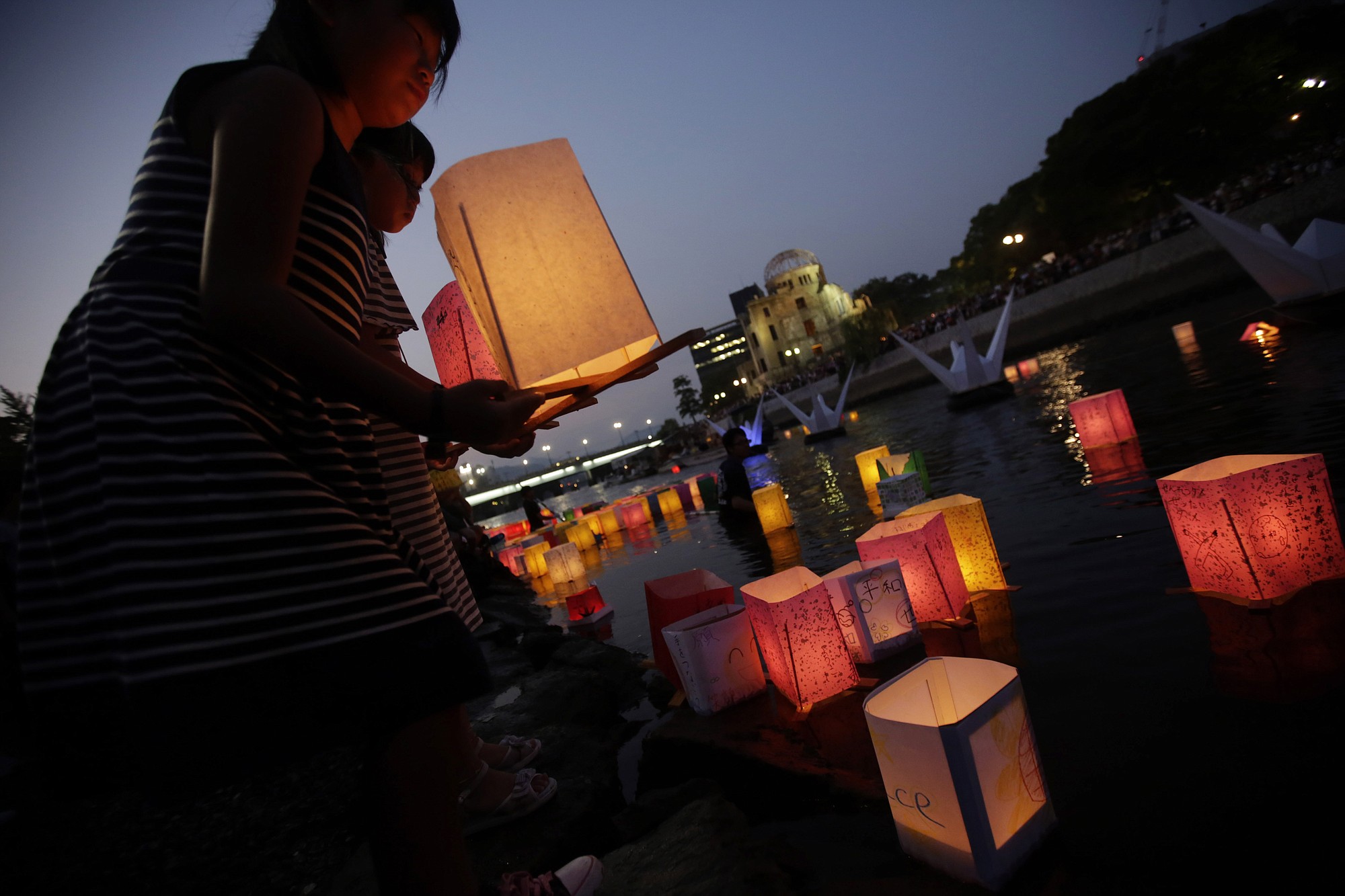HIROSHIMA, Japan — Atom bomb survivors, Japanese officials and diplomats marked the 70th anniversary Thursday of the world’s first nuclear bomb attack on the western city of Hiroshima in the final days of World War II.
The Bell of Peace tolled at 8:15 a.m. Wednesday in Hiroshima, the precise moment 70 years ago when an atomic bomb dropped by the U.S. bomber Enola Gay exploded over the center of the city, killing tens of thousands instantly.
By the end of the year, 140,000, including tens of thousands of Koreans and other non-Japanese, had died because of the bombing and its after-effects.
About 50,000 people attended the ceremony in Hiroshima’s Peace Memorial Park, including U.S. Ambassador to Japan Caroline Kennedy, U.S. Under-Secretary of State for Arms Control and International Security Rose Gottemoeller and representatives of about 100 other countries.
Sunao Tsuboi, an engineering student at Hiroshima University, was on his way to class near ground zero when the bomb exploded.
Suddenly he was blown sideways.
“Before I hid my face in my hands, I saw a brilliant rose-silver flash of light,” Tsuboi recalled.
He was briefly unconscious and came to lying on the sidewalk, burned from head to toe.
“I don’t know why I’m still alive today,” said Tsuboi, who now serves as chairman of the Japan Confederation of Atomic and Hydrogen Bomb Sufferers Organizations.
He was picked up by a group of soldiers and sent to a hospital.
His experience as a survivor of the world’s first nuclear attack led him to spend much of the past 70 years to “reflect on how humans could make peace,” said Tsunoi, who just celebrated his 90th birthday.
After the ceremony on Thursday, Tsuboi and other leaders of survivors’ groups met Prime Minister Shinzo Abe. They urged him to withdraw new legislation allowing the Japanese military to fight wars abroad for the first time since the end of World War II.
In Kuala Lumpur, U.S. Secretary of State John Kerry said Hiroshima is a “powerful reminder (that) underscores the importance of the agreement we reached with Iran to reduce the possibility of more nuclear weapons.”
He spoke alongside Japanese Foreign Minister Fumio Kishida on the sidelines of the ASEAN conference in Malaysia. “Our hearts go out to the survivors,” he said.



